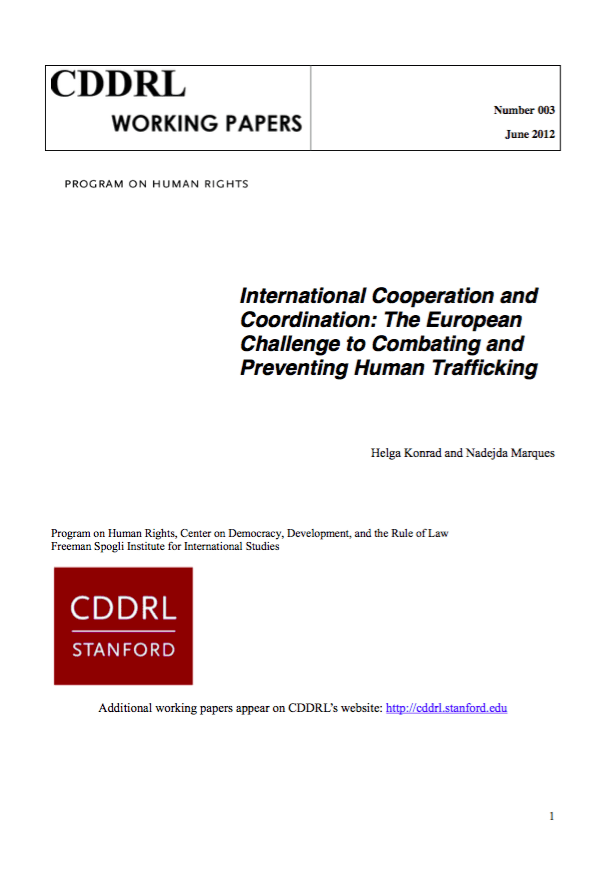
International Cooperation and Coordination: The European Challenge to Combating and Preventing Human Trafficking
Some twelve years after the unveiling of the UN Anti-Trafficking Protocol in 2000, most European countries have sound anti-trafficking legislation. Worldwide, while many countries amend their leg- islation and policies, they follow practice developed, applied and tested in Western Europe. Some of these practices consider national and international coordination and cooperation for an effective anti- trafficking policy. However, notwithstanding the progress European countries have made, within Eu- rope, governments have not been able to coordinate and develop a comprehensive and multi-pronged approach to render criminal networks of human trafficking inoperative. Why? The authors suggest that different definitions of human trafficking and variations in criminal law, the existing national security and state sovereignty framework, as well as lack of training and proactive investigation combine to facilitate corruption and limit successful prosecutions, convictions and international co- operation.
